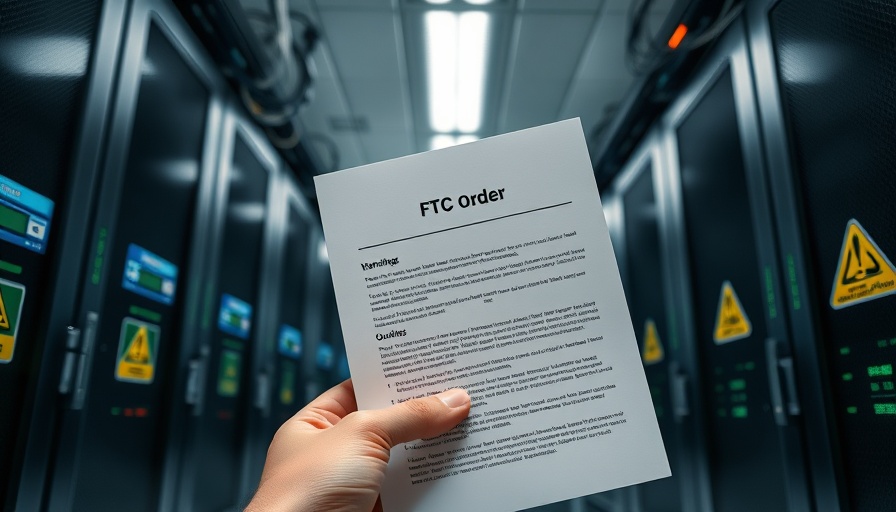
The Growing Importance of Cybersecurity in the Digital Age
As the digital landscape continues to expand, the cybersecurity of web hosting services becomes increasingly paramount. The recent actions by the U.S. Federal Trade Commission (FTC) against GoDaddy highlight a pressing concern shared by many businesses and consumers alike—the necessity for robust security measures to protect sensitive data.
GoDaddy's Troubling History of Data Breaches
GoDaddy, a prominent player in the web hosting industry, has faced a string of alarming security failures, bringing to light the vulnerabilities inherent in shared hosting environments. Notable incidents include the exposure of 28,000 web hosting accounts in May 2020 and a significant data breach affecting 1.2 million customers in November 2021. These events stemmed from lapses in security protocols, such as delayed breach detection and improper risk assessments.
Lessons from the FTC's Order
The FTC has mandated GoDaddy to establish a comprehensive information security program, emphasizing the need for rigorous data protection strategies in the industry. This order serves as a crucial reminder for all web hosting providers: proactive measures are necessary to safeguard customer data. The requirement for an independent third-party assessment underscores the significance of accountability in security practices.
Broader Implications for Businesses
The consequences of inadequate cybersecurity are far-reaching, impacting not only the companies involved but also their clients and end-users. As noted by Samuel Levine, director of the FTC’s Bureau of Consumer Protection, millions of businesses rely on providers like GoDaddy for secure web environments. Hence, the ripple effect of data breaches can lead to significant financial losses, legal repercussions, and reputational damage.
Cybersecurity as a Competitive Advantage
For executives and decision-makers, prioritizing cybersecurity can translate into a competitive edge. Investing in robust security measures not only protects sensitive information but also fosters trust and loyalty among customers. Organizations that take cybersecurity seriously signal to their stakeholders that they value their data and are committed to maintaining high standards of integrity.
The Road Ahead: Future Security Trends
Looking forward, the landscape of cybersecurity is likely to continue evolving. The integration of advanced technologies, such as AI and machine learning, into security protocols will be crucial for organizations aiming to stay ahead of emerging threats. As cyberattacks become increasingly sophisticated, businesses must remain vigilant and adapt to the changing security paradigm.
Conclusion: Embracing Security as a Core Strategy
The FTC's order against GoDaddy serves as a wake-up call for web hosting providers and businesses across sectors. Establishing strong security foundations is no longer optional—it is essential for protecting assets and ensuring customer confidence. By embracing a culture of security, organizations can navigate the complexities of the digital landscape while safeguarding their future.
 Add Row
Add Row  Add
Add 




Write A Comment